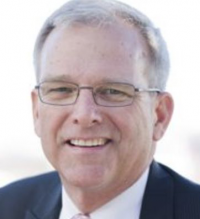January 20, 2021

Based on current trends in administering its first vaccinations for Covid-19, Massachusetts would complete giving first doses to all Massachusetts residents in June of 2023.
Since Dec. 15, first doses of the vaccine have found the arms of 206,190 in Massachusetts, or 7,110 people per day, according to Massachusetts Department of Public Health data (to Jan. 12). Removing the December data to account for the holidays and just counting the latest seven days of available data (Jan 6-12), results in a count of 7,463 first doses per day.
Divide that into the 6.6 million Massachusetts residents who have not gotten a first dose gives you 884 days until we’ve reached everyone in the state. Adding the expected 5,000 per day vaccinations at Gillette Stadium increases the potential first dose delivery per day to 12,463, with the result that all residents would have had a first dose by July 2022.
How can this be in the Commonwealth of Massachusetts, considered a center of the healthcare world and home to Moderna?
Relatives in New York are suggesting that those of us over 65 drive to New York to get vaccinated. I know of one person who is heading to Florida to get hers. Both of these states have altered their plans to allow access to the vaccine to anyone 65 or older. But in Massachusetts, we are strictly following the plan, which has numerous phases during which various groups are eligible to get the vaccine. Currently, we’re near the end of Phase 1, which includes first responders, nursing home residents, and health care workers.
Rigidity has not worked. Every day that Massachusetts fails to get the vaccine into more arms continues the stress in our health care system with increased hospitalizations and deaths. The slowness undermines our economy, and frustrates residents who don’t understand why we can’t move more quickly.
Harbor Health CEO Chuck Jones this week expressed frustration at the way the plan is being rolled out. “We spend more time trying to figure out who should get the next shots than giving the shots,” he said.
Sandra Cotterell, CEO of the Codman Square Health Center, noted that “the governor and mayor are very methodical about the plan,” and that she is waiting to see what will be announced.
“I think we’ll start to see some opening up in the next couple of weeks,” she said. “I’m not sure if it will go down to 65, but we’ll start to see movement. By February, we’ll be moving beyond first responders and nursing homes.” Codman,” she said, “is ramping up for 75 plus, and those with chronic disease, so we can do the outreach.”
But there are issues with moving toward mass vaccinations. Jones noted that “we’re focusing on a relatively small population,” and Harbor Health “would benefit if we opened up to everyone 75 and over. Until we do that, we can’t get to operational efficiency for many doses. In addition, with the 15-minute wait following the dose, if you don’t have a big enough space, it’s tough to push through a large volume.”
Cotterell said that Boston is “looking for sites for mass vaccinations.” She and Jones say they’re interested in having community health centers work together at a larger site in Dorchester that can serve a greater number of people per day, partly because staffing for vaccinations will become more problematic as Massachusetts seeks to do mass vaccinations. Even with President Biden’s allocation of dollars to accelerate vaccinations, both are concerned about staffing.
“We have to be innovative about administering the vaccine,” said Cotterell, noting that the state needs to approve allowing other medical workers, such as medical assistants, to inject the vaccine.
Jones added: “Staffing is a real challenge. We have difficulty staffing status quo operations.” He suggested creating a common certification and competency process to allow other health professionals to inject the vaccine.
Beyond the travails of meeting the medical needs of a pandemic while continuing to operate the regular healthcare system is the reality that unless the state starts thinking bigger, bolder, and faster, we will not be able to achieve herd immunity through vaccination in time for having a safe summer, and children in school in September.
Covid isn’t going away on its own. To do that, we need better infrastructure that can accommodate mass vaccination in spaces that work for that purpose, and staffing sufficient for the need.
Ken Burns stated on NPR that, “in 1947, the city of New York vaccinated in less than one month the entire population, 6 million inoculations against smallpox.” How about it, Massachusetts?
Bill Walczak is the former CEO of Codman Square Health Center and South End Community Health Center. His column appears regularly in the Reporter.


